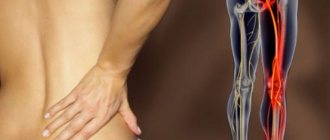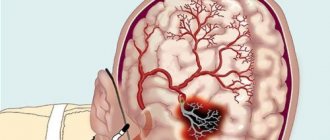The Origins of Fear
The fear of blood takes its origins from the distant past. During primitive society, people did not have developed medicine, and any open wound that became infected led to gangrene, blood poisoning, and even death.
Time passes, instincts remain. In the age of advanced medicine, some people instinctively fear open wounds, which are primarily associated with bleeding.
In addition to the remnants of the past, modern man is surrounded by the media, informing about the latest military operations, road accidents, fatal diseases, and so on. From early childhood, a social unit is influenced by the media; bloody images are deposited in the child’s mind, fears are formed, which later develop into phobias.
Symptoms of hemophobia
First of all, this phobia manifests itself in the form of an uncontrollable, unconscious fear, which is expressed at the level of a panic attack, in front of the appearance of blood. This can be either a person’s own blood after an injection or a cut, or someone else’s, including an animal. Associated symptoms of hemophobia: pallor, excessive sweating, noticeable tremor of the hands, fear is noticeable in the individual’s eyes, the pupils “run,” breathing quickens along with the heartbeat. Such people have a very difficult time withstanding, and therefore, in fact, are afraid of, all kinds of medical tests, including vaccinations.
The fear of blood manifests itself quite suddenly, at the exact time of a panic attack. The manner in which this phobia manifests itself is impossible to predict. Initially, this may be a short-term anxiety attack. It is accompanied by a number of subjective unpleasant sensations of the individual, which cause discomfort and are often themselves a cause of fear. The patient is worried about severe suffocation, chills and dizziness, limbs go numb, internal trembling is felt, nausea, and thinking is inhibited. This condition is regarded as a very strong signal of danger. During a panic attack, many hemophobes feel like they might go crazy or even die, so they try to avoid such situations by all available means.
go to top
What is the fear of blood called and its symptoms?
Fear of blood is scientifically called hemophobia (or hematophobia) and is an obsessive psychological condition in which an individual reacts painfully to the sight of blood.
Fear of blood has the following symptoms:
- panic at the sight of a small amount of blood;
- real or hallucinogenic sensation of the smell of blood;
- trembling of the hands;
- severe dizziness;
- cardiopalmus;
- pain in the heart area;
- increased sweating;
- nausea and vomiting;
- heart rhythm disturbance;
- involuntary urination and bowel movements;
- paleness of facial skin;
- fainting state;
- fainting state.
Pallor of the facial skin and fainting are common in advanced cases of the disorder. Fainting can be caused not only by a drop of human blood, but also by a bloody puddle under a fresh animal carcass in a store.
Hematophobia
Home»Phobias»Hematophobia
Published: July 24, 2012 at 09:04
Many phobias may seem strange or wild, and their complete list is probably not known to anyone, even researchers. And all for the simple reason that it is constantly replenished. But among the irrational fears of a person, phobias are noted, which occupy leading positions and are a kind of “classic”. For example, this is hematophobia, that is, fear of blood. This fear is given an honorable third place, and this fact proves that a truly significant number of people are susceptible to this fear, openly or covertly.
But, just as in cases with other fears, one should not confuse with a phobia the usual hostility or disgust that is characteristic of people when they see many objects or situations. It is no secret that the sight of blood makes many people turn away, and even causes nausea, but this does not mean that a person is a hematophobe. Scientists believe that disgust is a normal reaction, and it would be its absence, not its presence, that would be a deviation from the norm. This is how the body reacts to an unpleasant sight or picture. But if these sensations take uncontrollable forms, then special attention should be paid to these circumstances and, if necessary, treatment should be carried out.
Signs of hematophobia
Hematophobia is an obsessive condition characterized by intense fear caused by the sight of blood. And not only if it is on one’s own body, but also when a person sees wounds or cuts on other people. For example, if a hematophobe witnessed an accident, then, along with the victims, he also has to be given medical care, because when he sees blood, he faints. Moreover, this happens not only with weak people, but also with those who look strong and healthy in the eyes of others. In milder cases, the patient does not lose consciousness, but all the symptoms accompanying phobic fear are present. This is paleness of the face, trembling of the legs and arms, increased heartbeat. It becomes difficult for a person to breathe, the pressure may drop, and sometimes, on the contrary, it may rise.
The symptoms of hematophobia have their own specific features, which are characteristic of other phobias related to medicine, for example, fear of injections, hospitals, and medical workers. They consist in the fact that the hematophobe does not strive to immediately move away from a place or object that, in his opinion, is dangerous. It is also rare to experience causeless panic bordering on recklessness. But, if a person’s blood pressure drops sharply, the person suffering from hematophobia often loses consciousness upon seeing blood.
Moreover, multiple studies have been conducted that have proven that the intensity of fear is almost the same both when seeing one’s own blood and when seeing someone else’s. The only difference is that if the patient sees the blood of another person, he can turn away, withdraw, and not take part in providing assistance, limiting himself only to calling those who are nearby. If the blood is your own, then the emotions, of course, will be sharper, because it takes time to solve the problem, and you cannot run away from yourself.
Causes of hematophobia
When figuring out what causes fear of blood, we can name several different reasons. In the first place, scientists put such a factor as genetic predisposition, that is, an ordinary residual phenomenon of fear of blood, characteristic of our ancestors. This fear is based on the fear of injury to one’s own body, which, in turn, is explained by the fear of death. After all, the knowledge of medicine among our distant ancestors was not great, and medical care in the modern concept of this word did not exist.
It is also possible that the cause of the development of hematophobia may be fear based on previous experience. For example, once a person fainted when he was given the most ordinary injection, so it is quite possible that a similar situation will arise in the future. For some hematophobes, the fear is so strong that even in the event of a real threat to their health, they refuse qualified medical help. Based on such an example, we can draw completely unambiguous conclusions that this phobia is a serious obstacle in the life of the patient and prevents him from adapting. Therefore, in order to feel normal and free, you should undergo treatment.
How to get rid of hematophobia
There are situations when people exaggerate the severity of their illness, and their phobia is not as catastrophic as they themselves think. For example, a person decided to donate blood from his finger, but it seems to him that this
In this case, he will lose at least a liter of blood. What to do in such a situation? The doctor should be informed and told about the phobia so that he takes into account the condition of his unusual patient. Also, in order not to be afraid of a procedure involving blood, you can ask your friends who know how it happens about its details. In this way, it will be possible to get rid of unnecessary anxiety related to hematophobia.
It should be emphasized that not all phobias can be easily treated, and in order to get rid of some fears, it takes not even months, but years of struggle with the disease. But in the case of hematophobia, everything is much simpler, and this problem can be cured in a fairly short time. Doctors advise hematophobes to perform special exercises to help cope with fear. For example, muscle tension is effective. With hematophobia, blood pressure drops and the person loses consciousness. If, during an exacerbation of the phobia, you keep your muscles tense and move your limbs, then blood circulation is stimulated, preventing fainting.
Upon closer examination, it often becomes obvious that a person is not afraid of the blood itself, but of the procedure associated with it. A simple example - an injection can cause blood to appear, which means that the injection is the frightening factor in the first place. When a person cannot overcome a phobia with his own willpower, then there is no need to waste time and should seek professional help.
Reasons for the development of hemophobia
Trying to find an answer to the question of why some people are afraid of blood, scientists were able to identify four main reasons for the development of a phobia.
Reason 1
According to research by experts, the fear of the sight of blood often has no real reason behind it. In some cases, a psychological disorder begins to develop after a person has had a negative experience. For example, an unsuccessful surgical intervention in which the patient lost a significant amount of blood. Or witnessing a terrible traffic accident where the victim lost a lot of vital fluid.
Reason 2
As studies have shown, most hematophobes are people with a fairly fine organization of the nervous system, suspicious individuals with a creative mindset. Thus, a drop of blood seen paints in the mind of a hemophobe a terrible picture of a crime with a bloody puddle in the center.
Reason 3
For the most part, psychologists and psychiatrists agree with the theory that the basis of hemophobia lies at the genetic level. Since the ancestors of modern man did not have the necessary medical tools and skills (knowledge), any injury or scratch received could lead to serious consequences, even death. Ancient man treated blood with special caution and was afraid of getting injured, which would lead to death. Experts believe that this life position of savages contributes to the development of mental illness in our time.
Reason 4
The negative impact of the media on the human psyche. Movies with numerous scenes of violence presented to the human eye trigger the protective mode of the individual’s psyche. Various news reports from the scene of tragic events terrify a person. As a result, fear develops into a phobia and interferes with the normal functioning of the body.
Hemophobia: treatment
Hemophobia, like other phobic disorders, can occur in varying degrees of severity. Therefore, the treatment regimen is selected by the doctor for each specific patient individually. It is worth noting that a certain category of people significantly exaggerates the severity of their fear of blood. In such mild situations, it is enough for the doctor to competently construct a conversation with the patient and convey to him truthful information about the causes of fear in order to minimize the unpleasant sensations at the sight of blood.
However, more people with hemophobia suffer seriously from an illogical and uncontrollable fear of blood, while experiencing the full severity of panic attacks. For such patients, it is advisable to carry out complex treatment: taking psychotropic medications, psychotherapeutic work and hypnosis.
With the help of pharmaceuticals, it is possible to stabilize a person’s psycho-emotional status and eliminate excessive nervous tension. Drug treatment is prescribed for intense sympathoadrenal crises and is carried out exclusively in short courses.
Psychotherapeutic treatment of hemophobia is aimed at psychological education of the patient, teaching relaxation techniques, and eliminating rational links in the pathological fear of blood. Knowing that medical procedures are safe helps minimize anxiety. Understanding the fact that the appearance of blood is natural, blood collection and transfusions are important traditional procedures, makes it possible to reduce the intensity of unpleasant sensations when coming into contact with an object of fear.
However, psychotherapeutic treatment does not bring the desired results in difficult situations when the patient’s brain is preoccupied with experiences of uncontrollable fear. In the case of a complex and persistent course of hemophobia, it is advisable to carry out treatment with hypnosis techniques, since only the use of hypnosuggestive therapy opens access to the depths of the psyche - the subconscious.
It is in the unconscious sphere that all information about a person’s personal history is recorded, which cannot be retrieved from memory while awake. Immersion in a hypnotic trance due to the short-term elimination of censorship of consciousness allows you to closely study a person’s past and discover destructive elements in the life scenario. The trance state gives a patient with hemophobia the opportunity to relive traumatic situations and eliminate disturbing ideas from thinking.
Treatment with hypnosis is a miracle cure, since this manipulation involves a positive attitude - suggestion. A person, on a subconscious level, is armed with the information that any medical procedures involving contact with blood are safe and harmless.
Treatment of hemophobia with hypnosis provides real assistance to the patient in developing adequate adaptive reactions and motivates them to develop skills to manage their emotions in extreme situations. As a result of hypnosuggestive treatment, the patient gains complete psychological resistance to a previously frightening object and ceases to be dependent on the fear of blood.
Today, hypnosis treatment can rightfully be called the most effective technique that eliminates the causes and symptoms of abnormal fear of blood. The positive healing effects of hypnosis have been confirmed by numerous scientific studies and are successfully used in international psychiatric practice.
REVIEWS ABOUT HYPNOSIS SESSIONS BY PSYCHOLOGIST, HYPNOTHERAPIST GENNADY IVANOV
The mechanism of formation of phobias is based on the idea of the dual nature of the psyche, consisting of consciousness and subconsciousness. We will use the term “subconscious”, thereby emphasizing that this “internal knowledge” can be realized. The real problem is the irrational part of fear, which over time develops into a phobia - an inadequate reaction to the environment. The rational component of fear must remain, because this basic emotion mobilizes the body’s strength in order to survive.
Treatment of phobias comes down to a conscious search for an associative connection of a particular symptom with a traumatic event of the past. Hypnotherapy techniques erase and “demagnetize” a conditioned reflex, which in many cases acts as a hypnotic suggestion.
❂ Hypnosis: review of the treatment of fear of riding the subway & psoriasis.❂ Doping news. How and why is hypnosis effective in sports? ❂ Hypnosis: review of the treatment of dog phobia (kinophobia).❂ Hypnosis: review of hypnosis treatment of skin diseases (lichen erythematosus). ❂ Hypnosis: review of the treatment of fear of the dark (nyctophobia). ❂ Psychosomatics & Hypnosis: review of the treatment of panic attacks. ❂ Why hypnosis is effective in working with memory ❂ Hypnosis: review of the treatment of arachnophobia (fear of spiders). ❂ Hypnosis: review of the treatment of tachophobia (fear of speed). ❂ Hypnosis: a review of the treatment of fear of public speaking. ❂ Hypnosis: review of the treatment of ophidiophobia (fear of snakes). ❂ Hypnosis: review of the treatment of social phobia (prohibition of expressing emotions). ❂ Hypnosis: review of the treatment of social phobia and acrophobia (fear of heights). ❂ Hypnosis: a review of the treatment of social phobia (fear of judgement).❂ Tattoo under hypnosis. Self-hypnosis training.❂ Hypnoanesthesia. Treatment of deep caries under hypnosis.
Article rating:
Share with friends:
Manifestation of various degrees of disorder
The phobia can be of different levels: from initial and minor degrees to advanced cases. If you have a psychological disorder, a person may avoid going to the hospital for a finger or vein blood test. A hemophobe will put off visiting the treatment room in every possible way.
A more advanced case is the complete denial of visiting a clinic/hospital, explaining that in the building you can stumble upon a large amount of blood or even lose your own. Even in urgent need, such people refuse to visit a medical institution.
The most severe case of the disease is when another person urgently needs medical help. This could be some serious domestic injury that results in heavy bleeding. Instead of providing first aid, the hematophobe falls into uncontrollable panic or even loses consciousness.
Manifestations of hemophobia in humans
Blood phobia can have varying degrees of severity. In mild forms, a person experiences slight fear when undergoing tests or other medical interventions, but can tolerate the procedure and does not avoid undergoing it. It is possible to deliberately avoid visiting those hospital rooms where biological fluid is taken from a vein or finger.
In severe cases, a person begins to be afraid of any medical institutions, because there he may see a liquid that is unpleasant to him and lose his own.
If a person with a phobia sees even a small amount of blood, a panic attack may begin. In this case, the skin in the facial area becomes pale, the heart rate increases, tremors of the upper extremities occur, and the lower extremities tremble a little less frequently. Breathing may become too frequent or intermittent, and shortness of breath or a feeling of suffocation may occur. Blood pressure rises, an expression of horror appears on the face. In severe cases, symptoms may arise not from the sight, but from the sensation of smell or thoughts.
Increased sweating, trembling, chills, and nausea are often observed. It becomes difficult for a person to stay upright without support, and weakness in the legs may appear. There is discomfort in the chest. Sometimes a hemophobe loses consciousness.
Behavior is not controlled. During a panic attack, a person is unable to take reasonable action. A hemophobe will not be able to provide first aid to the victim.
How to overcome the fear of blood?
When answering the question of how not to be afraid of blood, you must remember that this is a psychological phenomenon that can be resisted.
For example, when you feel a rush of horror while waiting for your turn to donate blood, you need to take a deep breath. You should think that nothing terrible has happened yet, which means there is no reason to panic. You can read a book, sit on your phone, or carefully study the medical posters on the wall. It is important to take your mind off the upcoming procedure.
When entering the treatment room, it is better to immediately warn the nurse about your fear of blood. Thus, the fear of embarrassment and fainting is removed. And if the nurse approaches her work professionally, then during the short procedure she will provide all possible psychological support.
Another simple option to overcome the fear of blood is the advice: don't look. Before starting the procedure, you should turn away or close your eyes, thinking about something good and pleasant.
First aid for a hemophobe
As you know, fainting is the worst result of hemophobia. If a person has lost consciousness, he must first be brought to his senses. In this case, the victim should be placed on a hard surface and, if possible, raise his legs. The smell of ammonia will bring the body back to normal.
If the condition is pre-fainting, the sufferer should be seated horizontally, with the head lowered between the legs. It is important to provide a flow of fresh air and, if possible, give the person cold water and take him to wash his face.
The methods described above will help the hematophobe come to his senses. However, if such a person feels unwell, he should do a few squats, push-ups or bends. These actions will improve blood circulation and your health will improve significantly.
How to get rid of the fear of blood?
Experts have developed 5 steps to eliminate the fear of blood.
Step 1. Conversation
Often people exaggerate their fears. The fear of blood can be eliminated by talking to a psychologist or psychiatrist. A specialist will help you solve the problem by speaking your fear out loud. Having found the root cause and identified the result of the phobia’s impact on the body, he will direct the hemophobe’s thinking in the right direction.
One of these specialists is Nikita Valerievich Baturin. He will approach the problem comprehensively, using various methods of getting rid of fear, phobia and psychosomatics.
Step 2. Exercises
Unlike other phobias, fear of blood does not require long-term drug treatment. Regularly performing the following exercises will help a hematophobe in a difficult situation:
- Tighten all the muscles of the body for 3-5 minutes. You should start with the muscles of the hands, moving to the elbow joint, and then the whole body. With the next influx of fear, a reflex action will be triggered, and the body will independently begin to tense all the muscles of the body. This will restore blood circulation and help avoid fainting.
- If you feel faint, you should start doing active physical exercises: walking, running, squats, and the like. Blood pressure will increase, and fainting will not occur.
- Restoring breathing. An exercise consisting of 20 quick inhalations and exhalations will hyperventilate the lungs. The entry of oxygen into the body in large volumes will prevent loss of consciousness.
Step 3. Meditation
When trying to answer the question of how to stop being afraid of blood, you should pay attention to meditation. The meditation method is somewhat reminiscent of Christian prayers. A meditating person mentally repeats an idea that settles in his subconscious. Meditation classes are aimed at calming a person, reducing his anxiety and fearfulness.










